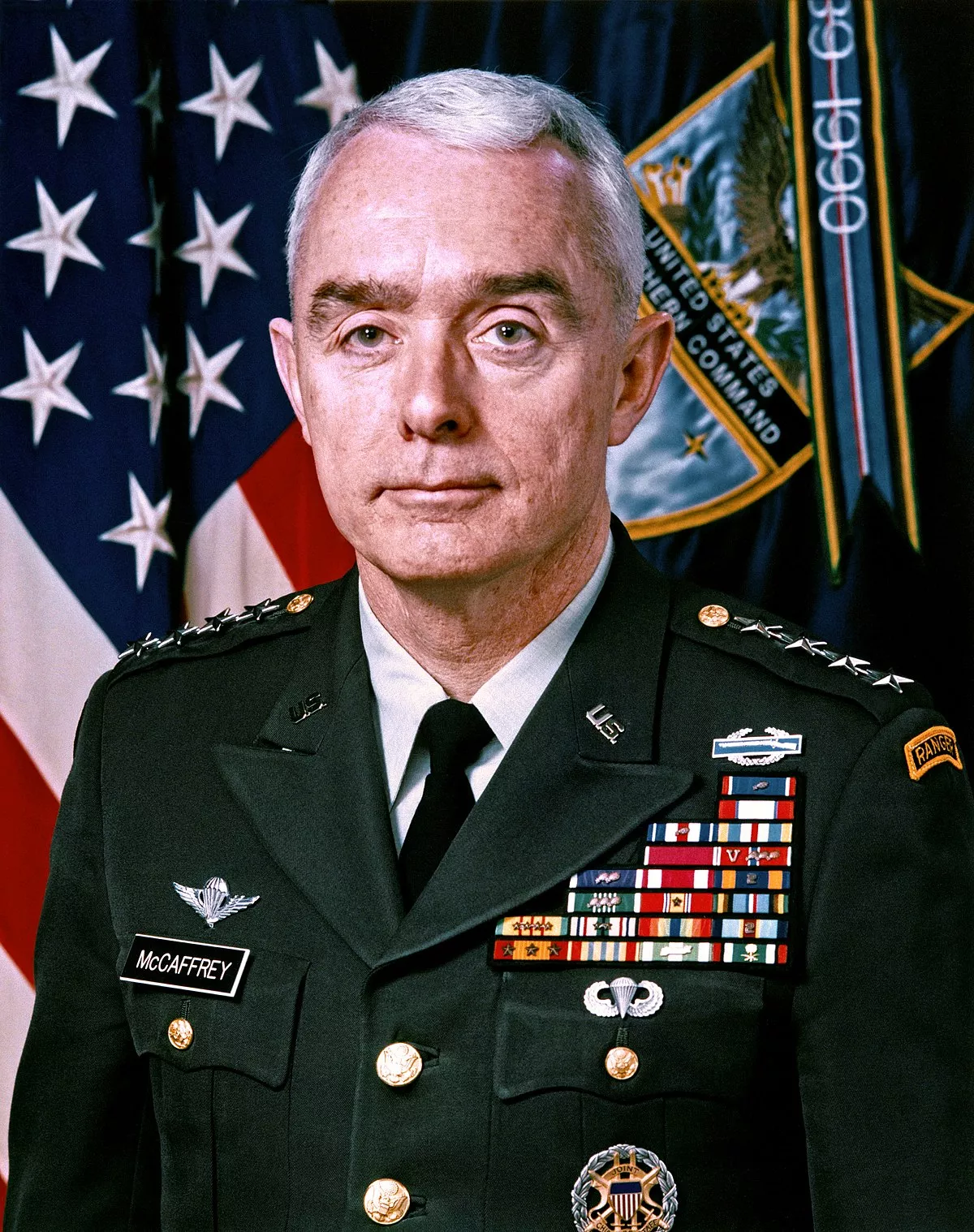 1.
1. Barry Richard McCaffrey was born on 17 November 1942 and is a retired United States Army general and current news commentator, professor and business consultant who served in President Bill Clinton's Cabinet as the Director of the Office of National Drug Control Policy.